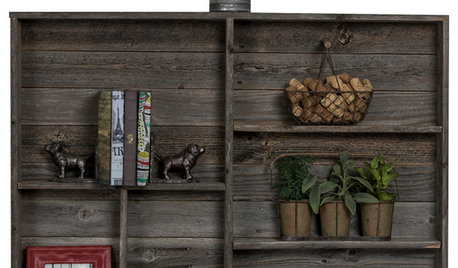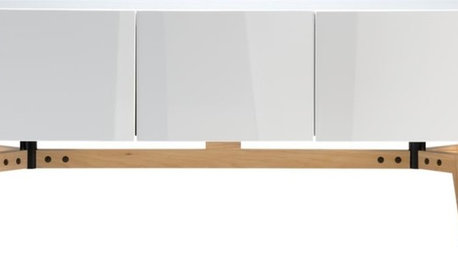saving wood ash
lucyfretwell
10 years ago
Related Stories

SHOP HOUZZShop Houzz: Save Up to 50% on Wood Wall Decor
Add the perfect finishing touch to your home with wooden wall accents
Full Story0

SHOP HOUZZShop Houzz: Save on a Rustic Fall Powder Room
Let autumn inspire your powder room remodel with warm woods and harvest hues
Full Story
SHOP HOUZZShop Houzz: Save on Dining Chairs in Every Style
All kinds of dining chairs in fabric, wood and leather, at up to 35% off
Full Story0

GREAT HOME PROJECTSHow to Refinish a Wood Deck
Keep your deck looking its best — and save feet from splinters — by applying a new stain and sealant every year or so
Full Story
REMODELING GUIDESYour Floor: An Introduction to Solid-Plank Wood Floors
Get the Pros and Cons of Oak, Ash, Pine, Maple and Solid Bamboo
Full Story
PRODUCT PICKSGuest Picks: Light Wood Accents That'll Grow on You
Ditch the darkness with modern accessories and furniture in ash, birch and light oak
Full Story
KITCHEN CABINETS9 Ways to Save Money on Kitchen Cabinets
Hold on to more dough without sacrificing style with these cost-saving tips
Full Story
SHOP HOUZZShop Houzz: Save on 3 Ways to Create a Textured Feature Wall
Save up to 40% on gorgeous wall coverings for your home
Full Story0

SHOP HOUZZShop Houzz: Save on Wall Coverings That Make a Statement
Transform your walls with panels, wallpaper and stencils at up to 40% off
Full Story0

SHOP HOUZZShop Houzz: Save up to 70% on an All-American Kitchen
Heartland-inspired furnishings and accessories for the heart of your home
Full Story0
More Discussions







pnbrown
ericwi
Related Professionals
70037 Landscape Architects & Landscape Designers · Garden City Landscape Architects & Landscape Designers · Andover Landscape Contractors · Chelmsford Landscape Contractors · Fairfield Landscape Contractors · Huntington Landscape Contractors · Lexington Landscape Contractors · Mason Landscape Contractors · Mission Landscape Contractors · Streamwood Landscape Contractors · Uxbridge Landscape Contractors · Wayland Landscape Contractors · North Hills Landscape Contractors · Kalamazoo Decks, Patios & Outdoor Enclosures · Pleasant Grove Decks, Patios & Outdoor Enclosuresseysonn
Natures_Nature
lazy_gardens
lucyfretwellOriginal Author
ericwi
toxcrusadr